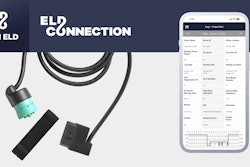Friday the U.S. District Court of the Northern District of Alabama ruled the Corporate Transparency Act (CTA) unconstitutional with its new reporting requirements for small businesses, including owner-operator LLCs and other business types.
The ruling followed a lawsuit filed by the National Small Business Association and an Alabama-based small business owner member, challenging the Beneficial Ownership Information reporting requirement of the CTA. That system, detailed earlier this year in Overdrive, requires a onetime filing for existing businesses within calendar year 2024, likewise imposing shorter deadlines on businesses established this year.
“The CTA has from the very beginning been poor policy that unfairly targets America’s small businesses,” said Todd McCraken, President and CEO of NSBA. “This ruling justifies the concerns of millions of American businesses about how the CTA is not only a bureaucratic overreach, but a Constitutional infringement.”
Implementation of the reporting requirement has been conducted through the U.S. Treasury’s Financial Crimes Enforcement Network (FinCEN), and is applicable in trucking to any owner-operator or small fleet business (fewer than 20 employees and $5 million in revenue) created by filing with the company’s Secretary of State. Owner-operator LLCs, S Corps, LLPs and some other business types have been faced with the requirement for onetime reporting to FinCEN since the first of the year.

[Related: Financial Crimes Enforcement Network's new reporting requirement hits owner-ops, small fleets]
According to the lawsuit, FinCEN estimated that the CTA applies to 32.6 million entities, along with 5 million new entities formed each year from 2025 to 2034.
According to NSBA, while the case was being considered in court, the ongoing implementation “has fallen short of expectations. … Millions of small-business owners still do not know about the requirements of the CTA or the beneficial ownership information (BOI) database.”
NSBA said the database, intended by law as a way to better identify business owners for federal investigatory and enforcement efforts around money laundering from abroad and domestically, “is ripe for data security issues and confusion, confusion that could land law-abiding small business owners with hefty penalties or even jail time.”
The failure to file BOI information, as previously reported, came with the possibility of civil fines of $500 per day beyond a business's deadline to report, and potential criminal penalties up to imprisonment for the worst cases.
“As the court noted, the ultimate goals of the CTA, countering money laundering and terrorism financing are laudable,” said John Neiman, counsel for the NSBA. But the court also noted the U.S. Constitution “sets limits on what Congress can do to achieve even the most laudable of goals, and Congress violated those limits here.”
U.S. District Judge Liles C. Burke issued the ruling Friday, calling the CTA "unconstitutional because it cannot be justified as an exercise of Congress' enumerated powers."
"The Government’s arguments are not supported by precedent," Burke said. "Because the CTA exceeds the Constitution’s limits on the legislative branch and lacks a sufficient nexus to any enumerated power to be a necessary or proper means of achieving Congress’ policy goals," the court ruled in favor of NSBA.
In its initial lawsuit, NSBA alleged that "the CTA’s mandatory disclosure requirements exceed Congress’ authority under Article I of the Constitution and violate the First, Fourth, Fifth, Ninth, and Tenth Amendments."
The government argued that it had the power to enact the CTA under its foreign affairs powers and its Commerce Clause authority, adding that the CTA "is a necessary and proper exercise of Congress' taxing power, since one purpose of the FinCEN database created by the CTA is to assist in efficient tax administration," the court's ruling states.
Because Judge Burke ruled that the CTA cannot be justified under Congress' enumerated powers, it was "unnecessary to decide whether the CTA violates the First, Fourth and Fifth Amendments."
As a result of the case, the court issued a permanent injunction, blocking the government from enforcing the CTA against the plaintiffs. It remains unclear whether the U.S. Treasury will appeal the case, likewise whether the injunction might apply beyond just NSBA, its members and the named plaintiff.
After this report initially went to press, FinCEN issued a release indicating it interpreted the injunction narrowly, as apply only to the named plaintiffs in the case, including NSBA members. "Those individuals and entities are not required to report beneficial ownership information to FinCEN at this time," FinCEN said.










